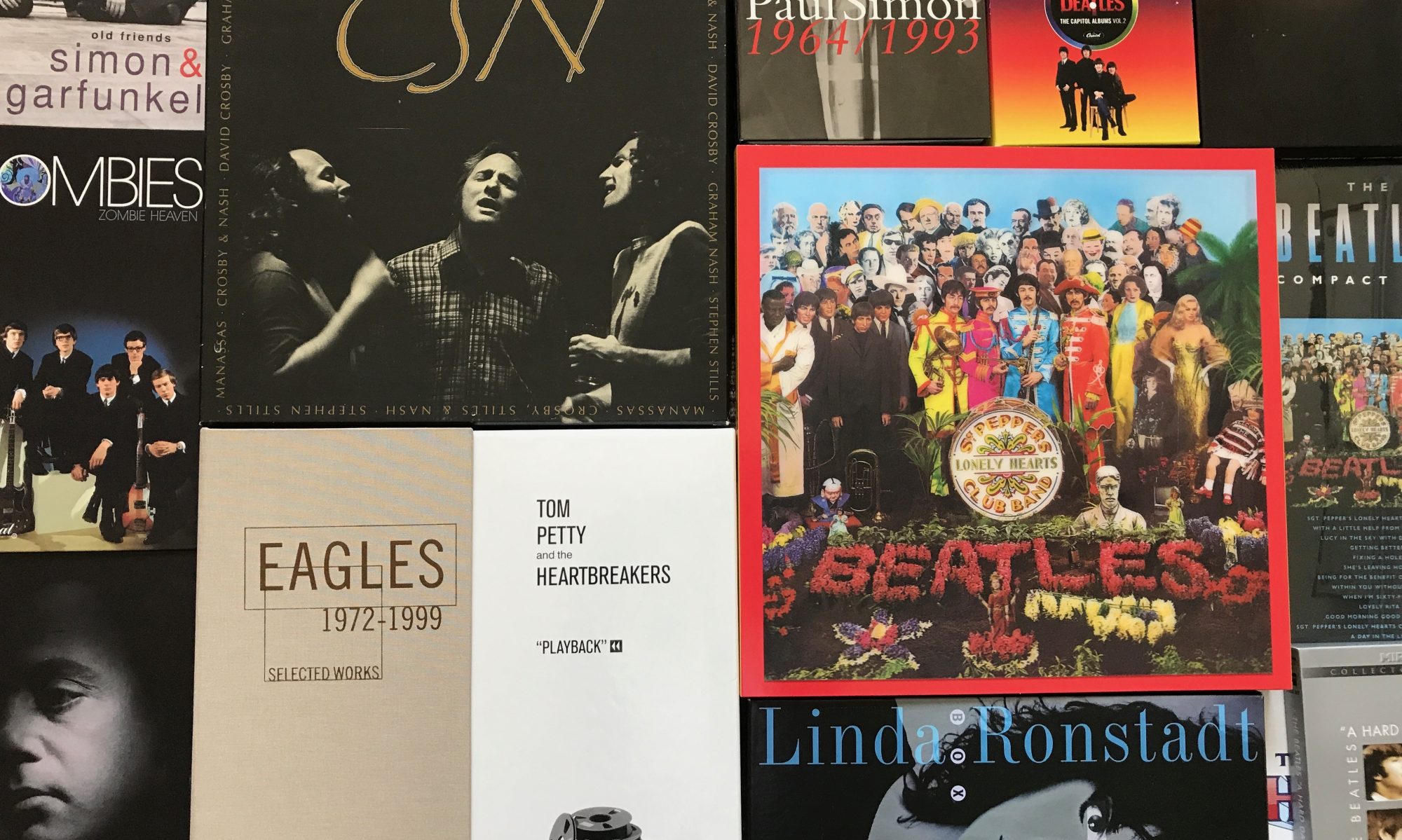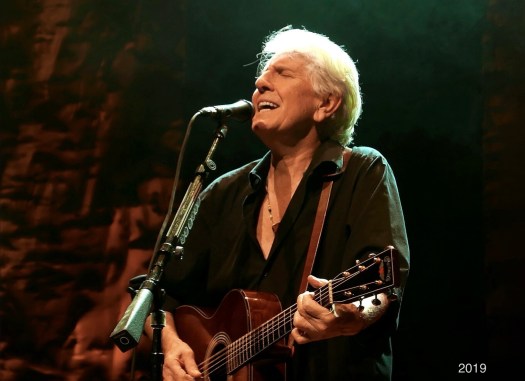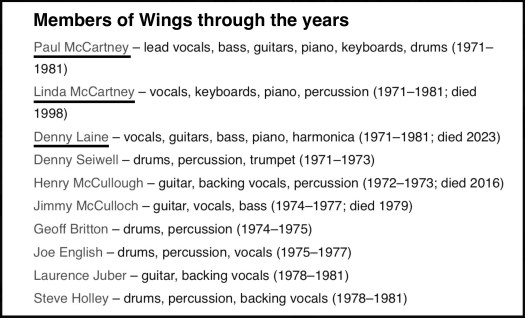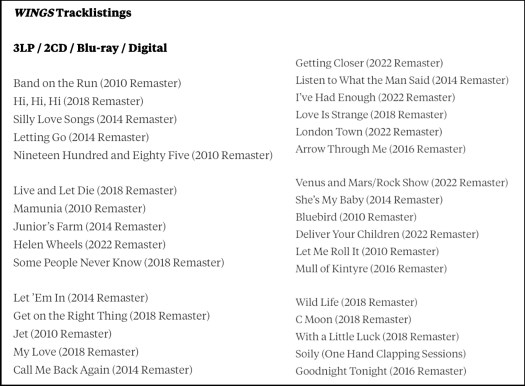The time between the Rock & Roll of the 1950s and the British Invasion of 1964 seems to be mostly forgotten. The music on the radio in America in the early 1960s was mainly focused on male vocalists, who ended up being called Teen Idols.
I’d been planning on writing an article on this era, but it was the recent death of 86-year-old singer/songwriter Neil Sedaka (February 27, 2026) that pushed me to actually complete it.
Neil Sedaka is seen here with the two biggest teen idols, Ricky Nelson and Elvis Presley, plus fellow singer-songwriter Roy Orbison. Ricky and Elvis both started during the 1950s Rock & Roll era, and continued their success into the early ‘60s. Most of their hit songs were written by professional songwriters, which was the norm for the time. You’ll see some of their ‘60s hits in a songlist below.
Neil Sedaka was a piano prodigy, and a songwriter who started having success in the late ‘50s, but his biggest hits were from 1960 to 1962. His songs included “Calendar Girl” (#4), “Happy Birthday Sweet Sixteen” (#6), “Next Door To An Angel” (#5), and his biggest hit “Breaking Up Is Hard To Do” (#1).
Roy Orbison had his first Top 40 chart success in 1960, with the #2 hit “Only The Lonely”. Then came #1 “Running Scared”, #2 “Crying”, #4 “Dream Baby”, and #7 “In Dreams”. His biggest #1 hit came during Beatlemania in 1964, “Oh, Pretty Woman” (one of the best singles of all time). That was really unusual, because the teen idols virtually disappeared from the charts when The Beatles dominated at the beginning of 1964.
Some of the other successful singers during the early ‘60s included Gene Pitney, and three Bobby’s…Bobby Vinton, Bobby Rydell, and Bobby Vee. It seems Bobby was a popular name, and in 1962 one-hit-wonder Marcie Blaine had the #3 song “Bobby’s Girl”. She wanted to be Bobby’s girl, we just don’t know which Bobby.
The other popular boy’s name in the songs of the era was “Johnny”.
To help you remember, or maybe even discover some of the songs and artists from the Teen Idol years, here’s a list of hits from my collection that I’ve enjoyed for years. You can see I started with “Breaking Up Is Hard To Do”, because it was perhaps the most representative song, plus it’s really good!
Teen Idols 1960-1963:
- Breaking Up Is Hard To Do…Neil Sedaka
- Sealed With A Kiss…Brian Hyland
- Poetry In Motion…Johnny Tillotson
- Take Good Care Of My Baby…Bobby Vee
- Forget Him…Bobby Rydell
- Dream Baby (How Long Must I Dream)…Roy Orbison
- Sheila…Tommy Roe
- Calendar Girl…Neil Sedaka
- Venus In Blue Jeans…Jimmy Clanton
- It’s Now Or Never…Elvis Presley
- Crying…Roy Orbison
- Only Love Can Break A Heart…Gene Pitney
- Runaway…Del Shannon
- Travelin’ Man…Ricky Nelson
- Blue Velvet…Bobby Vinton
- Next Door To An Angel…Neil Sedaka
- It Hurts To Be In Love…Gene Pitney
- Hello Mary Lou…Ricky Nelson (Gene Pitney wrote “Mary Lou”)
- Can’t Help Falling In Love…Elvis Presley
- Mr. Lonely…Bobby Vinton
- Only The Lonely…Roy Orbison
- Happy Birthday Sweet Sixteen…Neil Sedaka
- Teenage Idol…Ricky Nelson
- Runaround Sue…Dion
- Roses Are Red (My Love)…Bobby Vinton
- Stand By Me…Ben E. King
- Return To Sender…Elvis Presley
- It’s Up To You…Ricky Nelson
The Teen Idol era was partly a return to the Tin Pan Alley days when artists recorded tunes by professional songwriters. There were some remnants of ‘50s Rock & Roll, but until the British artists landed with their revitalized version of Rock & Roll with a big beat, we didn’t know what we’d been missing. That excitement showed us that our music had been a bit too mellow…even though it was fun to sing along with some great melodies.
Extra: Personal memories from the era include: My two older sisters played records by these artists, and also sang the songs in harmony in the back seat of our car on family trips. I enjoyed singing Ricky Nelson songs with a grade school classmate who played guitar. And, the chosen song for the first dance of our Homecoming King & Queen was “Blue Velvet”, because they wore blue velvet capes.
The Comebacks: Both Neil Sedaka and Roy Orbison had major career revivals. Sedaka had a #1 hit “Laughter In The Rain” in 1975, and co-wrote the hits “Love Will Keep Us Together” (#1) for The Captain and Tennille, and “Solitare” (#1 Adult Contemporary hit) for The Carpenters.
Roy Orbison joined his friends George Harrison, Bob Dylan, Tom Petty, and Jeff Lynne in The Traveling Wilburys in 1988. He also recorded a successful solo album, and a very impressive live concert, A Black And White Night. Sadly, in December of 1988, Roy Orbison died of a heart attack at the age of 52. The music of such talented artists lives on.
For an article on the Girl Groups of the ‘60s, click this link:














































































